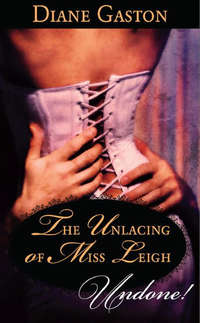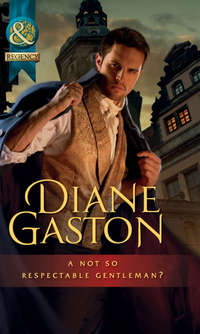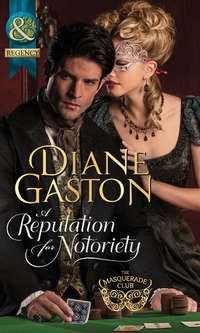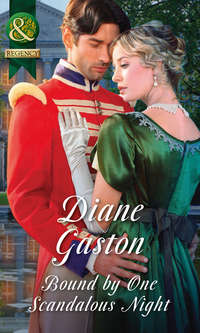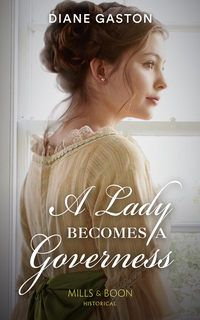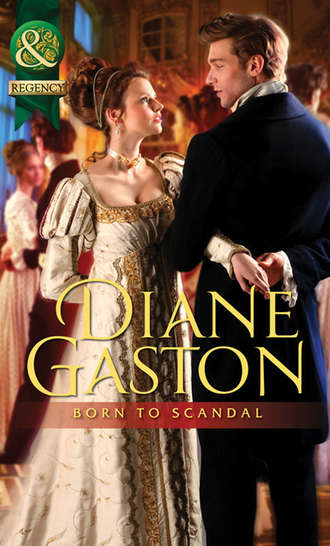
Полная версия
Born to Scandal

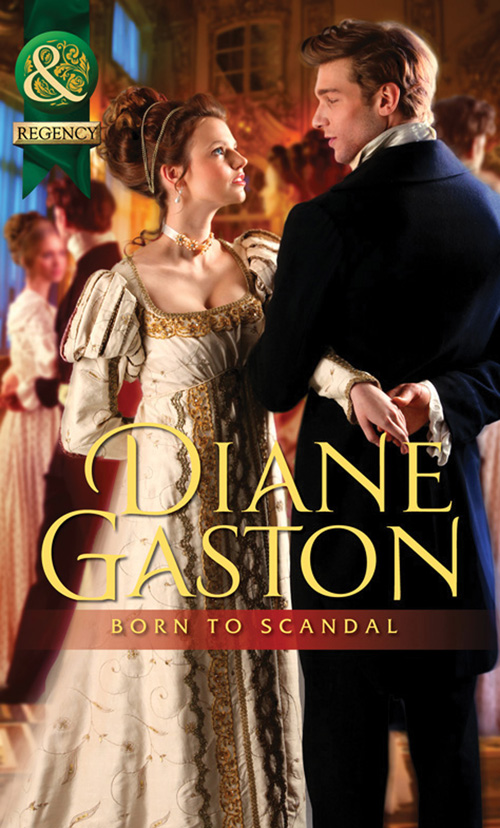
‘We cannot pretend what happened did not occur.’
‘We cannot change it either,’ Anna countered.
Lord Brentmore released her and stepped away. ‘Perhaps it is best that I return to London.’
‘Leave?’ Her voice rose and her eyes shot daggers at him. ‘Leave your children? Do not use me as an excuse to neglect them. If you have no wish to help them, then, indeed, go back to the pleasures of London. Forget them as you have done before—’
‘Enough!’ He closed the distance between them again. ‘You forget your place, Governess!’
He sounded just like the old Marquess. She did not back down, none the less. Instead she looked directly into his eyes. ‘Last night you lamented the damage done your children by your absence. Now you seize upon the slimmest excuse to leave them again.’
His gaze was entrapped by her blue eyes—so clear, so forthright and brave. Before he realised it his hands had rested on her shoulders, drawing her even closer to him. A memory, foggy and blurred, returned. He remembered kissing her …
He stepped back, jarred at how easily his own behaviour turned scandalous. ‘See, Anna—Miss Hill—how easily I might compromise you again?’
AUTHOR NOTE
BORN TO SCANDAL is my homage to Charlotte Brontë’s Jane Eyre—a story of secrets and betrayals, with a governess at the centre of it. Charlotte Brontë had been a governess in Yorkshire in the late 1830s, and well knew the loneliness of the position, later drawing on her experiences in writing her timeless classic.
A governess in the nineteenth century was often a pitiable creature. Neither servant nor family, she lived a lonely life between the two, working long hours caring for children, receiving little pay and no protection from those who might abuse her. Worst of all, she had little recourse for anything better.
Jane Austen, that astute social observer of her time, certainly shared the perception of the governess as a sad creature. In Emma, Austen even likens the prospect to slavery. Her character Jane Fairfax, who feels fated to become a governess, remarks that the governess trade is ‘… widely different certainly as to the guilt of those who carry it on; but as to the greater misery of the victims, I do not know where it lies.’
Never was there a Regency character more in need of a happy ending!
I wondered … What if I created a governess with a past even more scandalous than Jane Eyre’s and an aristocratic hero who, like Mr Rochester, is desperate to overcome the scandal in his own life? How could I give these two their happy ending?
BORN TO SCANDAL is the result.
I love to hear from readers. Visit me on Facebook and Twitter, or come to my website at http://dianegaston.com
About the Author
As a psychiatric social worker, DIANE GASTON spent years helping others create real-life happy endings. Now Diane crafts fictional ones, writing the kind of historical romance she’s always loved to read. The youngest of three daughters of a US Army Colonel, Diane moved frequently during her childhood, even living for a year in Japan. It continues to amaze her that her own son and daughter grew up in one house in Northern Virginia. Diane still lives in that house, with her husband and three very ordinary housecats. Visit Diane’s website at http://dianegaston.com
Previous novels by the same author:
THE MYSTERIOUS MISS M
THE WAGERING WIDOW
A REPUTABLE RAKE
INNOCENCE AND IMPROPRIETY
A TWELFTH NIGHT TALE
(in A Regency Christmas anthology)
THE VANISHING VISCOUNTESS
SCANDALISING THE TON
JUSTINE AND THE NOBLE VISCOUNT
(in Regency Summer Scandals)
GALLANT OFFICER, FORBIDDEN LADY*
CHIVALROUS CAPTAIN, REBEL MISTRESS*
VALIANT SOLDIER, BEAUTIFUL ENEMY*
A NOT SO RESPECTABLE GENTLEMAN?†
*Three Soldiers mini-series
†linked by character
And in Mills & Boon® Historical Undone! eBooks:
THE UNLACING OF MISS LEIGH
THE LIBERATION OF MISS FINCH
Born to Scandal
Diane Gaston

www.millsandboon.co.uk
To my sister Judy, my first and forever friend.
Chapter One
Mayfair—May 1816
The Marquess of Brentmore walked out of the library of his London town house and wandered into the drawing room.
He’d agreed to consider his cousin’s scheme. What the devil had he been thinking?
He strode to the window and gave a fierce tug at the brocade curtains. Why hang heavy curtains when London offered precious little sunlight as it was? One of many English follies. What he would give for one fine Irish day.
At times like this, when restlessness plagued him, his thoughts always turned to Ireland. He could never entirely banish his early years from his mind, no matter how hard his English grandfather, the old marquess, had tried to have it beat out of him.
He stared out the window, forcing his mind back to the weather. The sky looked more grey than usual. More rain coming, no doubt.
A young woman paced in Cavendish Square across the street. Something about her caught his eye and captured his attention.
He could not look away.
She brimmed with emotion and seemed to be struggling to contain it. He felt it as acutely as if those emotions also resonated inside him, as if he again waged a battle with a fiery temperament. The Irish inside him, the old marquess always told him.
Were his thoughts to always travel back to those days?
Better to attend to the pretty miss in the square.
What was she doing there all alone, looking as unsettled as he felt? She stirred him in a way the countless ton’s daughters who attended the Season’s balls and musicales failed to do. Foolish girls, who gazed at him hopefully until their mamas steered them away, whispering about his reputation.
Was it his disastrous first marriage those mothers objected to? he wondered. Or was it the taint of his Irish blood? The title of marquess did not make up for either one.
He did not want any of it. Not the Season. Not the marriage mart, certainly, no matter what his cousin said. He’d done that once and look where it had led him. No, he had no wish to be stirred by any woman, not even a glimpse of one, pacing across the street. He had work to do.
He pushed away from the window, but, at that same moment, she turned and the expression of anxious anticipation on her face cut straight to his heart.
He could see her eyes were large and wide, even from this distance. Her lips looked as if kissed by roses. Dark auburn hair peeked from her trim bonnet and the blue muslin of her skirt fluttered in the rising winds, showing a glimpse of her slim ankles.
He took in a quick breath.
She gleamed with expectation. Passion. Hope. Fear. She roused him straight from his heart to his loins, something not easily done, certainly not since Eunice soured all women for him.
Was she waiting for someone? A man? Was this to be some forbidden tryst?
Brent bit down on a stab of envy. Once he would have yearned to have such a young lady flouting respectability … to meet him.
He spun away from the window, dropping the brocade curtain again to block out the tempting sight of her.
What foolishness. Having endured a marriage from hell, he well knew how easily passion could lead to misery.
Brent marched back to the library and the piles of paper on his desk. He riffled through his correspondence. With one hand he lifted a letter and re-read the news from Brentmore. Parker, his man of business, was there taking matters well in hand.
The children’s elderly governess had died suddenly. Parker had been there and was able to attend to her affairs. He’d seen to her funeral and burial, but, damnation—how much were two young children supposed to endure?
First their mother’s death … now their governess?
Brent rubbed his face.
His children had suffered too much in their young lives. Perhaps his cousin was right. Perhaps it was time for him to consider marrying again. Eunice had been dead a year and the children needed a mother to watch over their care, to handle matters about governesses and such, to make certain their lives were worry-free.
Brent knew nothing of children. Eunice had taken charge of them and resented his interference. He’d been a virtual stranger to them. His brief visits to the children since Eunice’s death had been almost a formality. The governess always assured him she had the children under excellent control. Who was Brent to question her years of experience? When he’d been a boy, the old marquess had left him in the care of rather harsh tutors and then sent him off to school. He hardly saw the man until he’d returned from his Grand Tour. From what he could tell, other peers were similarly uninvolved in the care of their children.
Brent pressed his fingers against the smooth dark wood of his desk. He always felt sick inside when thinking of his children and how they would suffer for the sins of their parents. Better to go back to the drawing-room window and pine over a passionate young woman awaiting her paramour, than agonise over what he could not change.
There was a knock. Davies, his butler, opened the door a crack. ‘Pardon, your lordship. A Miss Hill to see you. Says she has an appointment.’
His mind went blank. An appointment?
Ah, yes. Sometimes luck actually shone on him. At White’s last night, he’d overheard someone saying he had a governess to fob off on someone. No longer needed her and wanted to settle her elsewhere as soon as possible. Brent told the fellow—who had it been?—to send the woman to him today. He wanted this problem of the children quickly solved, even if he had no clue what to look for in a prospective governess.
‘Send her in.’ Brent put down the letter and sat behind his desk.
‘Miss Hill, m’lord,’ Davies announced.
A soft feminine voice murmured, ‘My lord.’
Brent raised his eyes and every sensation in his body flared.
Standing before him was the passionate young lady he’d spied in the square. She took two steps towards him, close enough for him to catch the faint scent of lavender and to see that her large, wide eyes were startlingly blue and even more vibrant than the blue of her most un-governess-like dress. Fringed with long curling dark lashes, those eyes gazed at him with the same hope and fear he’d witnessed from the window.
Up close she did not disappoint. With skin as smooth and flawless as a Canova statue, she bloomed with youth. Her rose-coloured lips were endearingly moist. Worst of all, her obvious nervousness piqued tender feelings inside him, a much greater danger to him than his body’s baser response.
‘Anna Hill, sir.’ She made a small curtsy.
His gaze seemed unable to break away from how gracefully she moved, the expectant brightness in her eyes, the rise and fall of her chest.
She was no governess. That was apparent with a glance. She was quality, some society daughter all dressed up to impress.
She lifted her chin in a show of bravado and he broke his gaze, lowering it to the papers on his desk.
‘This will not do at all, miss.’ Whatever her game—attempting to compromise him into marriage or some other foolish idea—he was not playing. ‘You may leave.’
She did not move.
He glanced at her again and waved her away with his fingers. ‘I said you may leave.’
Two spots of red tinted her cheeks.
Damnation. He did not want to care about upsetting her.
She lifted herself to a dignified height and walked haughtily to the door. Yes, she was definitely quality.
As she turned the latch and opened the door a crack, he spoke again. ‘Let this be a lesson to you, Miss Hill.’
She whirled around, arching one brow. ‘A lesson, sir?’
Brent rose and impulsively walked towards her, closing the distance in a few long strides. She stood her ground, fixing her eyes on his approaching form. He put his hand on the door, whether to close it or force it open, he did not know. It brought him inches from her.
But she suddenly seemed small and vulnerable.
‘You would not have gained entry, but for the fact that I was expecting a woman applying for the position of governess.’ He deliberately flicked his gaze down to her breast, to intimidate her and teach her how dangerous being alone with a man could be. ‘You are no governess.’
She, however, did not flinch. ‘How would you know, sir, when you are not civil enough to hear my qualifications?’
Qualifications? Ha!
He touched her shoulder, rubbing his finger lightly over the cloth of her pelisse. ‘You do not dress like a governess.’
She pulled her shoulder away. ‘I do not know who you think I am, sir, but I have come to enquire about the position of governess. I concede I do not yet have the wardrobe of a governess.’ Her lovely blue eyes flashed with fleeting pain. ‘My clothes are provided by Lady Charlotte, for whom I act as companion.’
He shook his head in confusion. ‘Lady Charlotte?’
She lowered her gaze. ‘Earl Lawton’s daughter.’
That’s who it was! Brent felt like slapping his forehead. Lord Lawton had set up this interview. Good God. This was the governess.
It was her turn to look confused. ‘Did Lord Lawton not explain my situation?’
Brent had consumed a lot of brandy that night. He did not remember much of what Lawton explained, only that there was a governess when he needed one.
‘You tell me, Miss Hill.’ He pushed the door shut and stepped back a more respectable distance.
She averted her gaze. ‘I have been Lady Charlotte’s companion. Now that she is launched in society, my services are no longer needed.’
He turned sceptical again. ‘Companion, Miss Hill? You look as if you just stepped out of the schoolroom and are in need of a chaperone yourself.’
Her chin rose. ‘I was Lady Charlotte’s companion, not her chaperone. I—I’ve been her companion since we were children. The situation was …’ she paused as if searching for the right words ‘… unusual.’
He folded his arms across his chest. ‘Explain it to me.’
Her eyes sparked with annoyance, but she also looked on her guard. ‘I was raised with Lady Charlotte. She was an only child and extremely timid. She needed a companion. To take the place of an older sister, so to speak.’ She locked her gaze with his. ‘I also must tell you that I was—am—the daughter of Lord Lawton’s servants. My mother is a laundress and my father a groom.’
Brent shrugged. His lineage was nearly as undesirable. His mother had been as poor as an Irish woman could be. Brent had spent his early years on his Irish grandfather’s tenant farm in Culleen.
Until his English grandfather took him away. An uncle he’d not known existed died and suddenly Brent was heir to a title he’d known nothing of and sent to a land he’d considered the enemy’s.
‘I was raised as a lady,’ Miss Hill went on. ‘I studied the same lessons as Lady Charlotte. Learned everything she learned.’ She reached in the pocket of her pelisse and withdrew a paper. She handed it to him. ‘I have written it out.’
His fingers grazed hers as he took the paper. He noticed that her glove was carefully mended.
He pretended to read, then glanced back at her. His bare fingers still registered the soft texture of her glove. ‘My apologies, Miss Hill.’
She straightened her spine, as imperious as a lady patroness of Almack’s.
Her neck, so erect and slim, begged for his fingers to measure its length. In fact, his fingers wished to continue lower to the swell of her breasts—
‘Why do you regard me so?’ Her voice quivered slightly.
Good God, he’d been contemplating seduction.
Why did this beauty wish to bury herself in the thankless job of governess? Surely she knew the perils that befell a young woman in the employ of the wealthy and privileged. A governess had neither the protection of the other servants, nor that of society. She would be prey for any man who wished to seduce her.
He shut his eyes and turned to the bookshelves, fingering the bindings. ‘My apologies once more, Miss Hill. I fail to understand how a young woman of your—’ he turned back to her, involuntarily flicking another full-length gaze ‘—particular disposition would seek the position of governess.’
Her eyebrows rose in a look of superiority. ‘Do you doubt my ability to perform the task?’
He admired her bravery much more than was prudent. ‘You are very young.’
Seating himself on a chair by the library window, he stretched out his legs and crossed them at the ankle.
Her chin lifted again. ‘My youth is an asset, Lord Brentmore.’
He frowned. ‘Precisely how old are you?’
She pursed her lips. ‘I am twenty.’
‘So old as that.’ He spoke with sarcasm.
She took a step towards him. ‘My youth shall lend energy to the education of my charges.’
He tapped on the arm of the chair. The previous governess had been ancient. Retaining her had been a terrible error. Would hiring one so young also be a mistake?
‘I shall understand the children better,’ she went on. ‘I well recall the mischief of young children.’
He narrowed his eyes. ‘I do not need a governess who would join them in mischief.’
‘I would not!’ His insinuation obviously irritated her. ‘I am a most sober young lady.’
He stood and moved close to her again, close enough for his skin to warm from the proximity.
‘Tell me more, Miss Hill.’ His voice turned low.
She backed away, her hand fluttering to her hair, trying to brush a tendril off her cheek. ‘I know I am not a lady, precisely, but I was trained in the same way. I received every advantage….’ Her voice trailed off.
Curse him. He needed to keep his distance.
She took another breath. ‘There is another reason to engage me, sir.’
‘Pray tell,’ he said.
She looked him in the eye. ‘I have an acute appreciation of learning, my lord. My unique situation—that of one who would never otherwise be so educated—makes me appreciate the advantage. It has opened the world to me.’ She swept her arm towards the walls covered with leather-bound books. ‘I would show your children the world.’
For the first time, her face filled with sincere pleasure. It touched something deep within him, something he needed to keep buried. ‘You would create a bluestocking.’
‘Indeed not,’ she snapped. ‘I would create a lady.’ She pointed to the paper she’d handed him. ‘I learned all the feminine arts. Stitchery, water-colours, the pianoforte. Manners and comportment and dancing, as well.’ She jabbed her finger at her list. ‘I also have skills in mathematics and Latin, so I am well able to help prepare a boy for Eton …’ Her voice trailed off as if she feared she’d said too much. Her eyes pleaded. ‘I would please you, my lord. I am certain I would.’
He forced his gaze downwards, as hungry as a starving man for some of that youthful passion. Lawd. He was only thirty-three, but, at this moment, he felt like Methuselah.
The children deserved a proper education. A proper upbringing. He tapped a finger against his leg.
More than that, his children deserved some joy. The children were innocents, even if they embodied all his failures and mistakes. Let this governess—this breath of spring air—be a gift to them.
What’s more, she would be in a household where no man would take advantage of her. It was not as if he would be tempted. He hated Brentmore Hall and spent as little time there as possible.
He allowed his gaze to wander along the bookshelves, less dangerous than looking again into those hopeful eyes.
‘You need not attire yourself in drab greys,’ he finally said. It would be a shame to conceal all that loveliness under high necklines and long sleeves. ‘Your present wardrobe should suffice.’
‘I do not understand.’ Her voice turned breathy. ‘Do you mean—I have the position?’
He swallowed. ‘Yes, Miss Hill. You have the position.’
She gasped. ‘My lord! You will not regret this, I assure you.’
Her relief was palpable and the smile that broke out on her face made his insides clench.
He cleared his throat. ‘You will make yourself ready to assume your duties within the week.’
Her eyes glittered with sudden tears, and his arms flinched with an impulse to hold her and reassure her that all would be well, that she had nothing to worry about.
‘I will be ready, sir.’ Even her voice rasped with emotion.
He had to glance away. ‘I will send word to Lord Lawton that I have hired you.’
Anna blinked away relieved tears furious at herself for allowing her emotions to overrun her at this important moment. She wanted—needed—to remain strong or risk the chance that this marquess would again change his mind.
She’d not imagined him to be so formidable, nor so tall. And young. She’d thought he’d be like the gentlemen who called upon Lord and Lady Lawton, shorter than herself, with rounded bellies, and at least ten years older than the marquess. His eyes, as dark as the hair that curled at the nape of his neck and framed his face, unnerved her. Her legs trembled each time he looked at her with those disquieting eyes. Especially when he dismissed her without even allowing her to speak. At that moment she’d been sure all was lost.
What would she have done? Lord Lawton had made it clear there were limits to the assistance he’d render to help her find employment. And there was no one else she could turn to in London. Her parents and all the other people she knew were back at Lawton.
But the marquess had hired her! Even after she’d lost her temper with him. Even after that speech of hers about her esteem of learning.
Hopefully her love of learning would be enough to make her a governess, because she possessed no other qualifications for the job.
‘Well.’ She struggled for what to say next. ‘Excellent.’
His brows lowered again.
Oh, my. What if he changed his mind?
She cleared her throat, groping for an idea of what a governess ought to ask. ‘May I ask about the children? How many will be in my charge and—and to whom do I answer regarding their care?’
That sounded sufficiently like a governess.
He frowned, as if her question vexed him. ‘Two, only.’
She tried a smile. ‘Their ages?’
He averted his gaze. ‘My son is about seven. My … daughter, five.’
‘Lovely ages.’ Two children did not sound terribly daunting, especially two so young. ‘And are they at Brentmore Hall?’
She and Charlotte had looked in the Topography of Great Britain and an old volume of Debrett’s in the Lawtons’ library to learn about this marquess. They knew the marquess’s wife died a little over a year ago, but all else they discovered was that the marquess’s manor house, Brentmore Hall, was in Essex.
‘Of course they are at Brentmore,’ he snapped. ‘Where else would they be?’
Did that question offend him? Conversing with him was like walking on eggs.
He paced like a panther, a huge wild cat she and Charlotte saw once at the Tower of London. That black cat had prowled its cage, back and forth, back and forth, lethally dangerous and yearning to escape.


